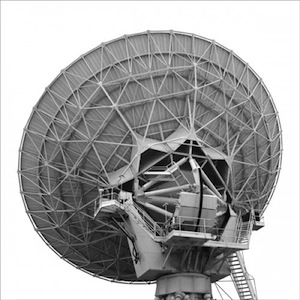The-Drum Contact
The Chicago-based production duo of Brandon Boom and Jeremiah Chrome has been busy in the […]

The Chicago-based production duo of Brandon Boom and Jeremiah Chrome has been busy in the past 12 months. In addition to releasing the Sense Net EP through Mishka in the middle of last year, the pair has recently branched out into producing for R&B vocalists, including Jody and Kit. The producers’ new record, Contact, hints that this collaborative process may have had an impact on their own productions, which are now sounding drastically more accomplished and possess a newfound sense of space and dynamics. The album features less of the skittering, hip-hop-influenced production that characterized The-Drum‘s prior work—which sometimes felt bogged down because of its density—and instead favors a spacious and liquid form of instrumental R&B.
Opening track “Heat” features a synth line that recalls Art of Noise’s “Moments in Love,” using the song’s now-infamous melody to anchor what might otherwise be meandering, stuttering sci-fi beats. The use of this reference point makes it clear that the pioneering post-punk/electronica group’s shadow looms large over Contact; this time around, The-Drum is focusing its energy on sprawling experimental suites and projecting an air of vaporous, futuristic dystopia. The eight-plus-minute long “Narco” is a prime example, and in many ways, it’s the centerpiece of the record. The track pops with basslines and orchestra hits that wouldn’t sound out of place on a Scritti Politti record, and the song has a production sheen that makes it sound like it could be a utterly mutant outtake from a Jam & Lewis session.
Elsewhere, lead single “Sirens” hews closer to the brittle, snare-heavy hip-hop production style of The-Drum’s earlier singles, but with a welcome added level of rhythmic complexity and menace. The only track to feature vocals (although some of the tracks feature cut-up vocal samples), “Contact,” falls somewhat flat by bordering on the saccharine, with Ryan Sullivan’s soaring guest vocals failing to gel in any satisfying way with The-Drum’s uncharacteristically generic beats. The album is at its best on the tracks that explore the interplay between beats and texture, such as album closer “Mantra,” where pitched-down vocal bits and evocative and glistening arpeggios dart around the track’s fluid, dynamic beats.
On Contact, The-Drum proves to be quite adept at creating and maintaining a unique atmosphere poised somewhere between creepy sci-fi post-punk and a gauzy, psychedelic take on R&B. It’s a novel combination that the album’s press release wryly notes “could only be a product of these times.” Especially given the current ubiquity (and uniformity) of instrumental, post-trap hip-hop and R&B productions, The-Drum’s willingness to convincingly break the mould deserves to be applauded.

